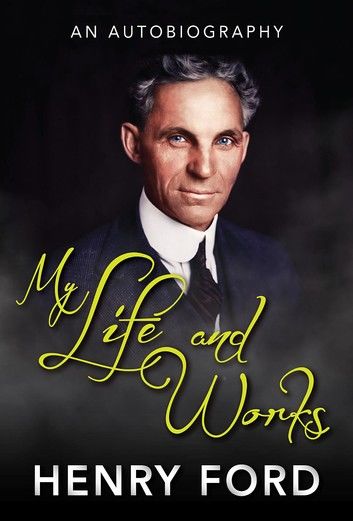Anyone can think up an idea. The thing that counts is developing it into a practical product. The lessons of Henry Ford, one of America's greatest business innovators, are as fresh and vital today as they were in 1922, when this extraordinary book was first published. Ford explains: how his experiences as an employee influenced his philosophies as an employer. It's easy to see that much of Ford's wisdom has been forgotten today and that individual entrepreneurs and global corporations alike would do well to take another look. American entrepreneur, inventor, and philanthropist HENRY FORD (1863-1947) was born in Michigan and trained as a machinist and engineer before founding, in 1903, the Ford Motor Company.
ABOUT THE AUTHOR:
Henry Ford was an American industrialist, the founder of the Ford Motor Company, and sponsor of the development of the assembly line technique of mass production. Although Ford did not invent the automobile or the assembly line, he developed and manufactured the first automobile that many middle class Americans could afford. In doing so, Ford converted the automobile from an expensive curiosity into a practical conveyance that would profoundly impact the landscape of the twentieth century. His introduction of the Model T automobile revolutionized transportation and American industry. As owner of the Ford Motor Company, he became one of the richest and best-known people in the world. He is credited with "Fordism": mass production of inexpensive goods coupled with high wages for workers. Ford had a global vision, with consumerism as the key to peace. His intense commitment to systematically lowering costs resulted in many technical and business innovations, including a franchise system that put dealerships throughout most of North America and in major cities on six continents.










